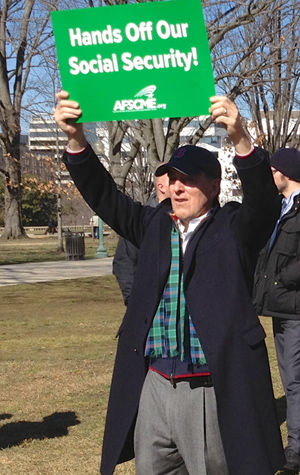
On this date 80 years ago, in 1935, President Franklin Delano Roosevelt deepened and expanded the New Deal by signing into law the Social Security Act (SS). Frances Perkins, FDR’s secretary of labor, was the architect of the historic legislation. In an ultimate sense, her devotion to the cause of labor stemmed from being an eye-witness to the tragic Triangle Shirtwaist Fire of 1911.
Perkins wrote how difficult it was later “to understand fully the doubts and confusions in which we were planning this great new enterprise.” She recalled meeting with Supreme Court Justice Harlan Stone, who reminded her that “the taxing power is sufficient for everything you want and need.” That power would translate into those deductions you see from your paycheck – perhaps less a tax as such, and more an investment in your own future security.
At first, SS did not cover farm workers, domestics, or workers in businesses with fewer than 10 employees. Historians have interpreted these limitations as the price FDR had to pay at the beginning in order to get Southern Democrats to sign on. Of course, if you were already over 65, you missed out. In subsequent years SS has been extended to cover these excluded groups – almost all employees and the self-employed, assuming they were paying their taxes all along.
The right wing “economic royalists,” as FDR called them in his time, predictably opposed SS as socialistic; however, in the end, most Republicans joined Democrats in Congress to vote for it. Both parties continued to support SS: In fact, benefits went up 50 percent under Pres. Richard Nixon.
For 80 years, through good times and bad, Social Security has been there for America’s seniors, people with disabilities, children and veterans. Before Social Security, about half of America’s seniors lived in poverty. Today that number has been reduced to just 8 percent. It has become the essential core of a retiree’s livelihood, allowing people to age with dignity and independence. Currently, about 59 million people receive SS.
One egregious problem with SS today is that state and government workers, including teachers, have been excluded, since they have their own pension plans. But these are less dependable, and subject to the whims of legislators. It would help if all workers were folded into the same system.
Over the next 15 years, with the maturing of the Baby Boom generation, some 11,000 people will turn 65 every day (!). At the same time, people today have longer life expectancies and higher health care costs. Action to strengthen SS cannot be delayed until it is too late.
For years, many GOP candidates for office have been attacking Social Security on the campaign trail with the same tired fear-mongering they’ve been using since 1935. The right wing criticizes “entitlements” (as they call them) that are bankrupting the country; most working people see them as earned benefits, part of the long-term social contract, an insurance program from which most people – though not all – will eventually benefit. Workers who have had difficult, backbreaking jobs without decent benefits all their lives tend to have shorter life spans, and will enjoy fewer years of retirement, if any. And yet they paid in like everyone else.
The only solution you will hear from the GOP is either to privatize SS, so as to help Wall Street profit from it (and also risk your investment in it), or reduce benefits to future, or even current recipients.
But another solution is staring us in the face: The current wage cap on SS payments is only $118,500. Most people in the working class earn far less than that, but everyone on Wall Street earns at least that with their generous bonuses, and many professionals, mid-level managers and entrepreneurs earn many times that. Some highly paid CEOs make $118,500 literally in the first few hours of the year, then pay no further SS taxes. Looked at from the “Occupy movement” point of view, one could say that the millionaire and billionaire class, whose wealth has exponentially skyrocketed in recent decades while working-class wages have flatlined, has actually stolen that money from our future. If everyone paid the same rate into SS, no matter how much they made, the SS reserve would be guaranteed into the infinite future.
In this generation, for the first time in our country’s history, current and future retirees are preparing for a lower standard of living in retirement than their parents. With 38.3 million working-age households with zero retirement savings, our elected officials must look for ways to expand the only guaranteed source of retirement security: Social Security, the most successful social insurance program in our country’s history.
Sources: AARP, People for the American Way.
Photo: Wikimedia (CC)












Comments